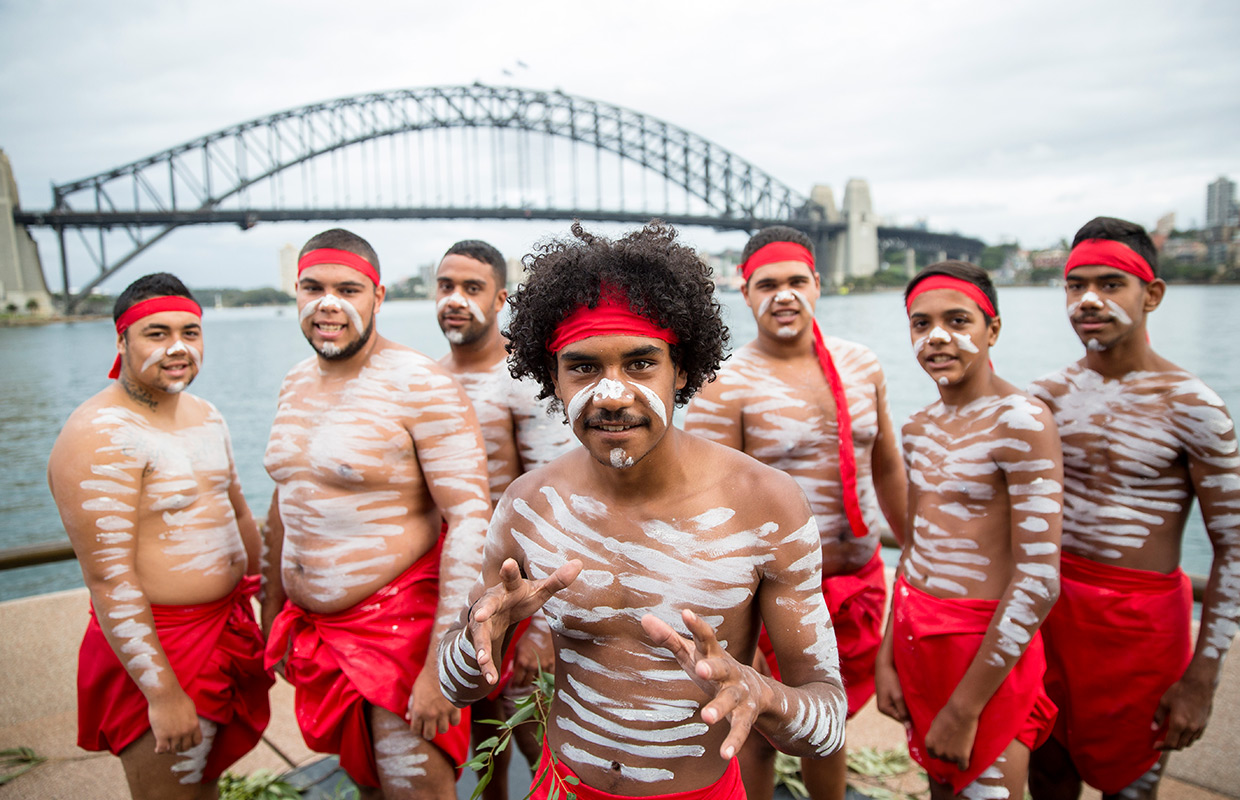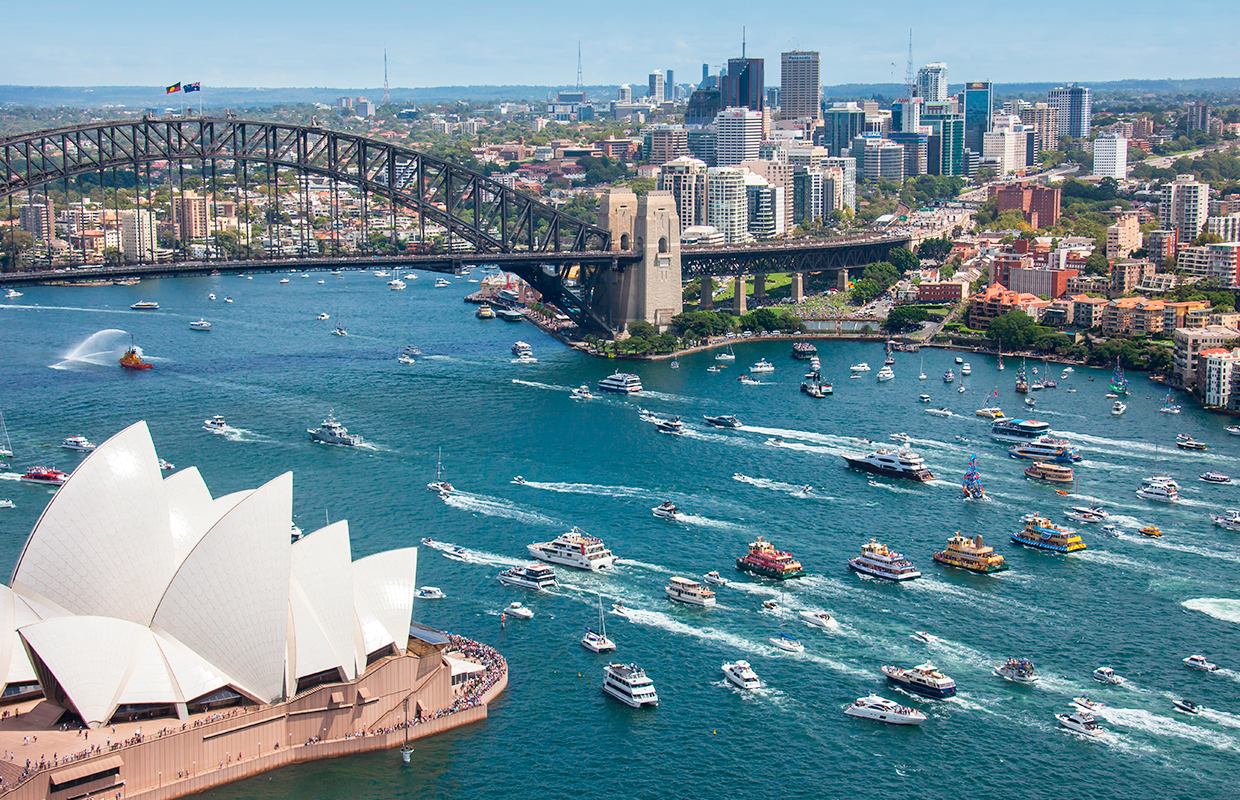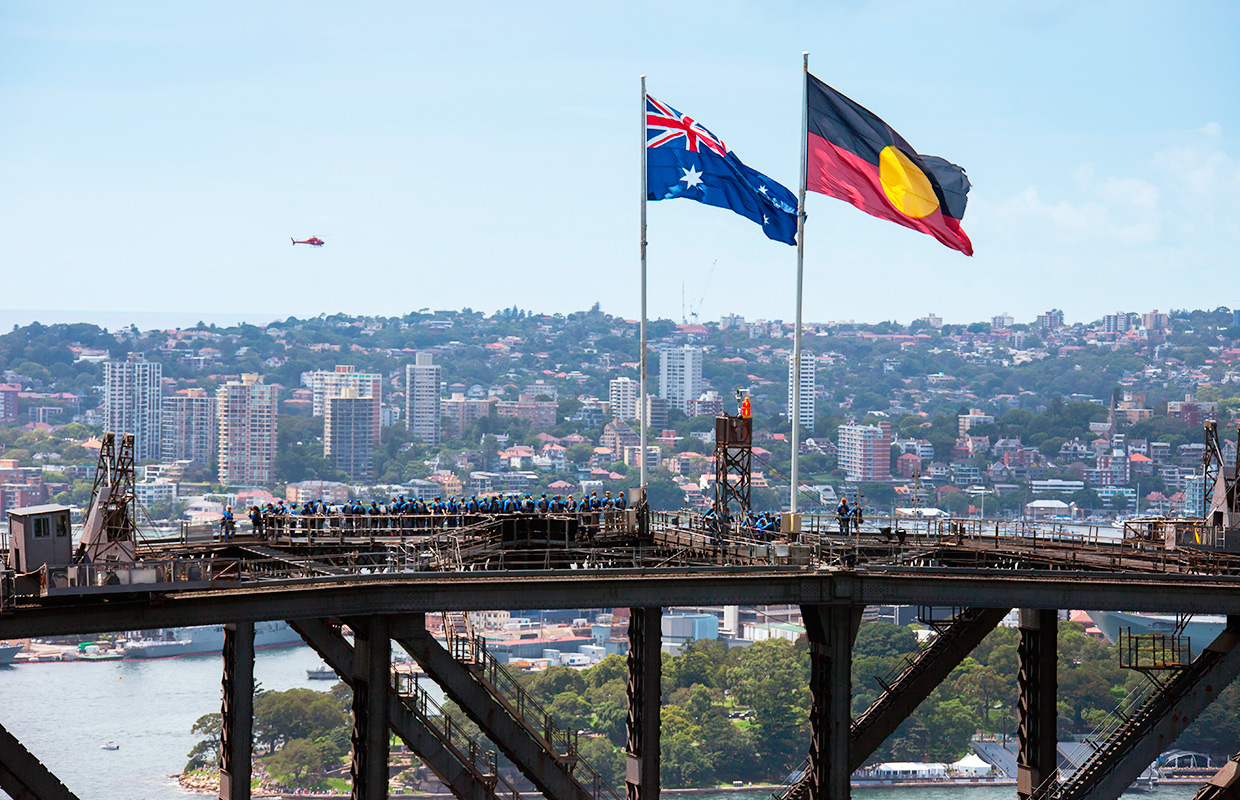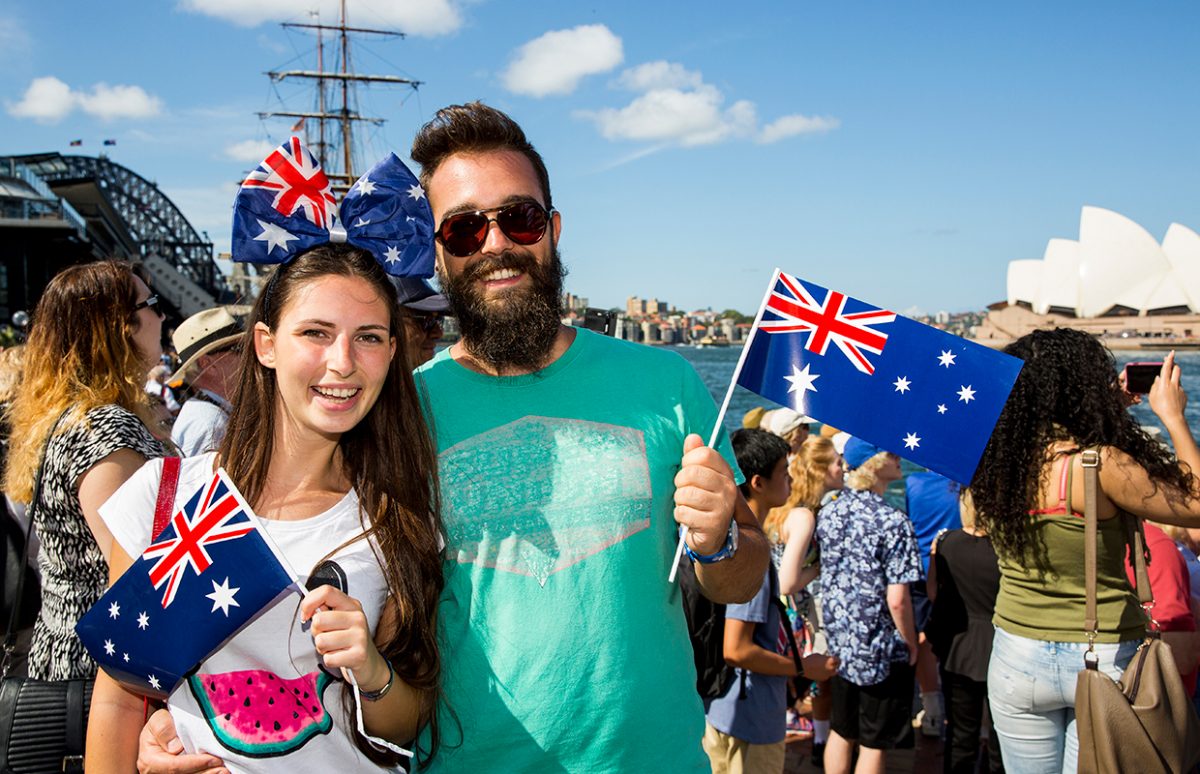Australians celebrate their national day on 26 January, the anniversary of the first British colonisation of the continent in 1788.
On 26 January, 1788, the British flag was first flown over the penal colony that was to be established at Sydney Cove. It marked the end of a nine-month journey for the 1,500 people, half of them convicts, on the 11 ships which formed the First Fleet, led by Captain Arthur Phillip.
Captain James Cook had claimed the eastern coast of Australia for Britain in 1770, naming it New South Wales. Up until that point, the various navigators who had reported sighting the continent in the 17th and 18th centuries had referred to it as Terra Australis Incognita (unknown southern land).
Sydney was the first attempt to colonise New South Wales, and was named appropriately for Lord Sydney, who, as the British Home Secretary (interior minister), was responsible for prisons and prisoners.
Expansion
Other colonies were gradually established in other parts of Australia, and New South Wales was split into smaller, more manageable colonies, until, in 1901, the then six states unified as a single "Commonwealth of Australia".
26 January had long been celebrated in New South Wales but the other states celebrated their own foundation. With the approach of the bicentenary of the founding of Sydney in 1988, 26 January became established as Australia Day, though it only became a fully recognised public holiday in 1994.
Day of Mourning
Aboriginal communities opposed the celebration of the beginning of the invasion of their land, and in 1938 renamed it the Day of Mourning. The Aboriginal population had been decimated by European colonisation, and only obtained full citizenship rights in 1967.
Today, Australia Day organisers make great efforts to include all Australians in the celebrations. There are now Aboriginal ceremonies to begin the day in many places.

In Sydney, the home of Australia Day, the WugulOra ceremony encourages people to join together and "reforge the songlines of Sydney". Songlines are a key part of the Aboriginal oral tradition and heritage and a way of navigating and appreciating the land. (See Webpicks for more on songlines.)
Sydney Celebrations
After the WugulOra ceremony Australia Day in Sydney includes a regatta that has taken place for 181 years, and a "Ferrython": the ferries that usually carry passengers around and across Sydney Harbour are decorated and have a race. They are accompanied by lots of private boats, which makes for an impressive sight of the finish line from Sydney Harbour bridge. The ferries that race are called the "First Fleet" and bear the names of nine of the original ships which arrived in 1788.

Australian Celebrations
Australia Day is in mid-summer so celebrations include lots of picnics, outdoor sports, fireworks, and barbecues of course.
Another popular feature are Citizenship ceremonies where new immigrants receive their citizenship certificates and existing Australians can recite an affirmation pledge:
"As an Australian citizen,
I affirm my loyalty to Australia and its people,
Whose democratic beliefs I share,
Whose rights and liberties I respect,
And whose laws I uphold and obey."

Raising the Australian flag, as the British flag was raised in 1788, is an important part of Australia Day celebrations. Increasingly, flag ceremonies also include the Aboriginal flag. It was designed by Aboriginal artist Harold Thomas in 1971. Mr Thomas describes the significance of the flag:
Black – represents the Aboriginal people of Australia
Yellow circle – represents the Sun, the giver of life and protector
Red – represents the red earth, the red ochre used in ceremonies and Aboriginal peoples’ spiritual relation to the land
Copyright(s) :
Photos: Destination NSW
Tag(s) : "Australia" "Australian Aboriginal people" "celebrations" "citizenship" "colonisation" "flags" "Give Me Five 4e" "history" "January" "Speakeasy Files 3e"





